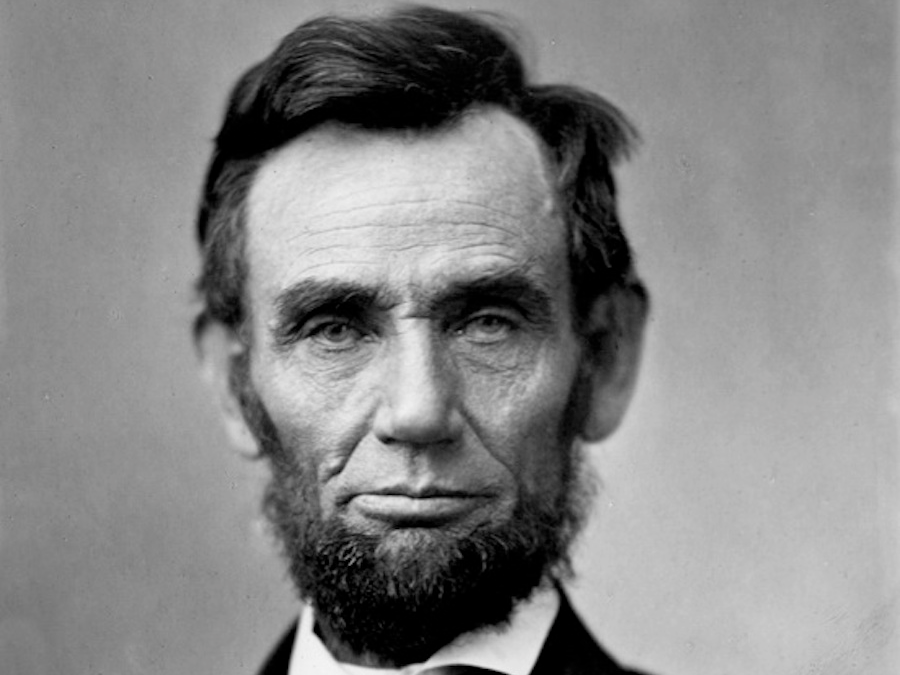• This Presidents’ Day, Americans celebrate the legacy of the United States presidency.
• Abraham Lincoln, the 16th president, is widely regarded as one of the greatest presidents of all time.
• Lincoln’s daily work routine reflects his intense work ethic.
Abraham Lincoln is widely considered America’s greatest president.
Monday, February 12, marks the 209th anniversary of his birth. Born on the Kentucky frontier, Lincoln would grow up to lead America through one of its bloodiest conflicts. He cleared the path for the abolition of slavery, preserved the Union, revolutionized the federal government, and lost his life in the process.
And the US certainly hasn’t forgotten his legacy. Since 1948, there have been 18 major surveys that asked American scholars to rank the presidents. Lincoln came in first in 10 of those surveys – and claimed second or third place in the other eight. That means that Abraham Lincoln took the top spot more than the other 42 presidents featured in the rankings. CBS reported that former US President Barack Obama also listed Lincoln has his all-time favorite president.
But what was everyday life like for Lincoln in the White House? As it turns out, the president’s typical routine reflected his singular commitment to his work.
Here's a look at Lincoln's daily schedule:
Lincoln typically woke up around 7 a.m. He'd work for an hour before breakfast, and sometimes headed out into the early morning to grab a newspaper from a newsboy.

Source: "Lincoln's Last Months," "Abraham Lincoln: A Biography"
First Lady Mary Todd Lincoln knew that her husband often simply forgot about meals. She'd sometimes invite guests to eat breakfast with the family, in order to ensure the president would remember to come.

Source: "Lincoln's Last Months," "Abraham Lincoln: A Biography"
Lincoln typically took a simple breakfast: eggs, toast, and coffee.

Source: "Lincoln's Last Months," "Abraham Lincoln: A Biography"
According to biographer William E. Gienapp, the president would head to the East Wing of the White House to work after breakfast.

Source: "Abraham Lincoln and Civil War America: A Biography"
Lincoln's usual tasks included speech-writing, Cabinet meetings, meet-and-greets with the public, and responding to a mountain of correspondence.

Source: "Abraham Lincoln and Civil War America: A Biography," Fast Company
He had a particularly unusual method for assembling speeches, historian Doris Kearns Goodwin told Fast Company: jotting down thoughts on scraps of paper, and hoarding them all in his desk.

Source: Fast Company
"When the time came for the speech, he'd just pick these little thoughts out," Goodwin said. "Somehow he managed to get the Gettysburg Address from those scraps."

Source: Fast Company
An avid reader, Lincoln stayed up to date on news reports. As a lawyer in Illinois, he had reportedly annoyed colleagues with his habit of lying on the law firm couch and reading entire newspapers aloud, in an effort to retain more information.

Source: "Abraham Lincoln and Joseph Smith: How Two Contemporaries Changed the Face of American History"
Lincoln sometimes took a break for lunch at one o'clock, but often skipped a midday meal. He did have a fondness for apples, however, and enjoyed eating them with nuts, cheese, and crackers, according to food blog The Questing Feast.

Source: The Questing Feast
The First Lady insisted on taking her husband on late afternoon carriage rides, for his health. Sometimes, Lincoln would also take a solitary ride on horseback.

Source: "Abraham Lincoln and Civil War America: A Biography"
Dinner was at six. Lincoln's favorites were relatively simple dishes like oyster stew, corn pone, chicken fricassee, and apple pie for dessert. He typically skipped alcohol, and mostly drank water.

Source: The Questing Feast, "Abraham Lincoln: A Life"
According to biographer Michael Burlingame, he'd sometimes hang out with friends and colleagues in the White House's Red Room after dinner.

Source: "Abraham Lincoln: A Life"
Lincoln would usually retire to bed at 10 p.m. or 11 p.m. On nights when important news about the war was imminent, the president would stay up as late as 2 a.m., waiting with the War Department's telegraph operators, Burlingame writes.

Source: "Lincoln's Sanctuary: Abraham Lincoln and the Soldiers' Home," Van Winkle's, "Abraham Lincoln: A Life"
After the death of 11-year-old Willie Lincoln in February 1862, Lincoln's youngest child — 9-year-old Tad — would often sleep on a small trundle bed in the president's bedroom. The president himself struggled with insomnia, and was known to take late night walks.

Source: "Lincoln's Sanctuary: Abraham Lincoln and the Soldiers' Home," Van Winkle's, "Abraham Lincoln: A Life," Mr. Lincoln's White House

